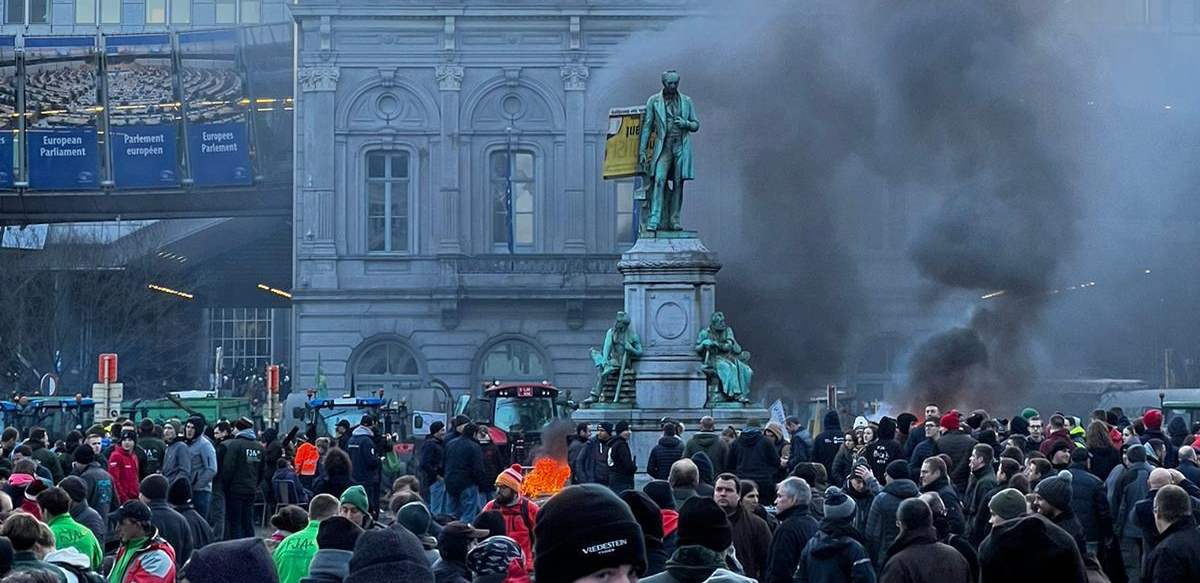Farmers convene in Brussels during EU Leaders summit
Today, as EU leaders gather for a special EU summit focusing on the EU’s long-term budget, farmers have brought central Brussels to a standstill as 2,700 tractors have taken to the streets.
Farmers’ protests have erupted across Europe in recent weeks, emphasising deep discontent over agricultural policies and economic pressures. There is the mounting feeling amongst farmers that they are being over-regulated by Brussels, largely through environmental policies, and also let down by free-trade agreements, including ongoing Mercosur negotiations. Protests have been seen across the 27 EU member states and have shown how just a few hundred tractors can bring traffic to a standstill in capitals from Berlin to Paris, Brussels and Rome.
Yesterday, 31 January, under pressure from ongoing farmer demonstrations, the President of the European Commission Von der Leyen announced a “one-year derogation from CAP rules on fallow lands”. Revised conditions for GAEC 8 were part of the greater flexibility expected by farmers.
The European Farming Union Copa and Cogeca, of which the British Agriculture Bureau remains a member, noted this announcement but believes this decision comes late in the agricultural calendar and remains limited. They hope that Member States will further strengthen this proposal to have a more consistent approach especially in Members States that have been particular impacted by extreme climate events, during the European Council meeting today.
"European farmers have been under increasing pressure from many sides," said European Commission vice-president Maroš Šefčovič. He said that in southern Spain, some water reservoirs were at only 4% capacity. Forest fires have wiped out around 20% of Greece's annual agricultural income. Considering farmers’ income, Šefčovič said the value of grain production fell by 30% last year - from €80 billion to less than €60 billion - "So you have to think about the fact that farmers' incomes are getting lower." In 11 EU countries, prices at the farm gate fell by more than 10 percent from 2022 to 2023. Only Greece and Cyprus saw a corresponding increase in their farmers’ sales revenues, helped by a surge in demand for olive oil
French farmers undertake 'siege of Paris'
France has seen the biggest escalation of protests, with Paris under siege, highways blocked and attacks on trucks at the Spanish border with fresh produce destroyed.
A call to protest was launched by FNSEA, France's main farmers union, as frustrations escalated with farmers airing pre-existing grievances about the high cost of diesel, increasing limitations on irrigation, and environmental over-regulation.
France's new Prime Minister Gabriel Attal paid tribute to the country's agriculture sector and has conducted lengthy meetings with FNSEA. Attal also acknowledged that longstanding EU rules have been throwing “sticks in the wheels” and heaping new burdens on farmers over recent decades, and lamented that polarisation of farming and environmental issues. Attal said he was well aware that the government had not yet addressed the issues at the root of the farmers’ grievances. The Macron administration is keen to appease farmers before the European elections in June, fearing they may otherwise back Marine Le Pen’s far-right National Rally party. The most recent concession was in late 2023, when the government scrapped plans on tax increases for pesticides and irrigation. Agriculture Minister Marc Fesneau also announced the launch of a “hydraulic fund” to help farmers invest in water storage, wastewater reuse, and more efficient irrigation.
The French government made some concessions to appease farmers over the weekend, including cancelling a cut in diesel subsidy, speeding up payments & reducing ‘red tape’ by removing set-aside requirements.
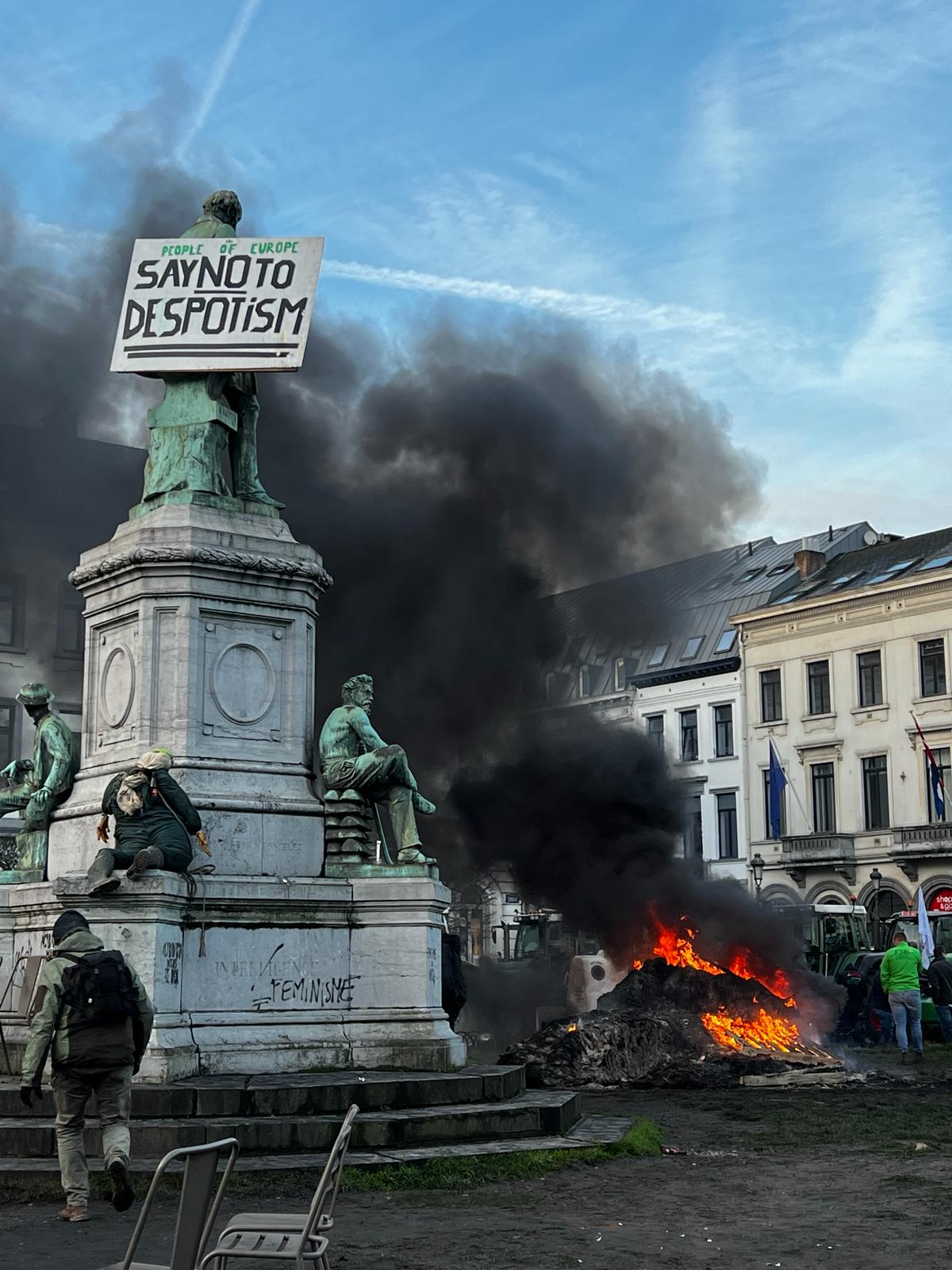
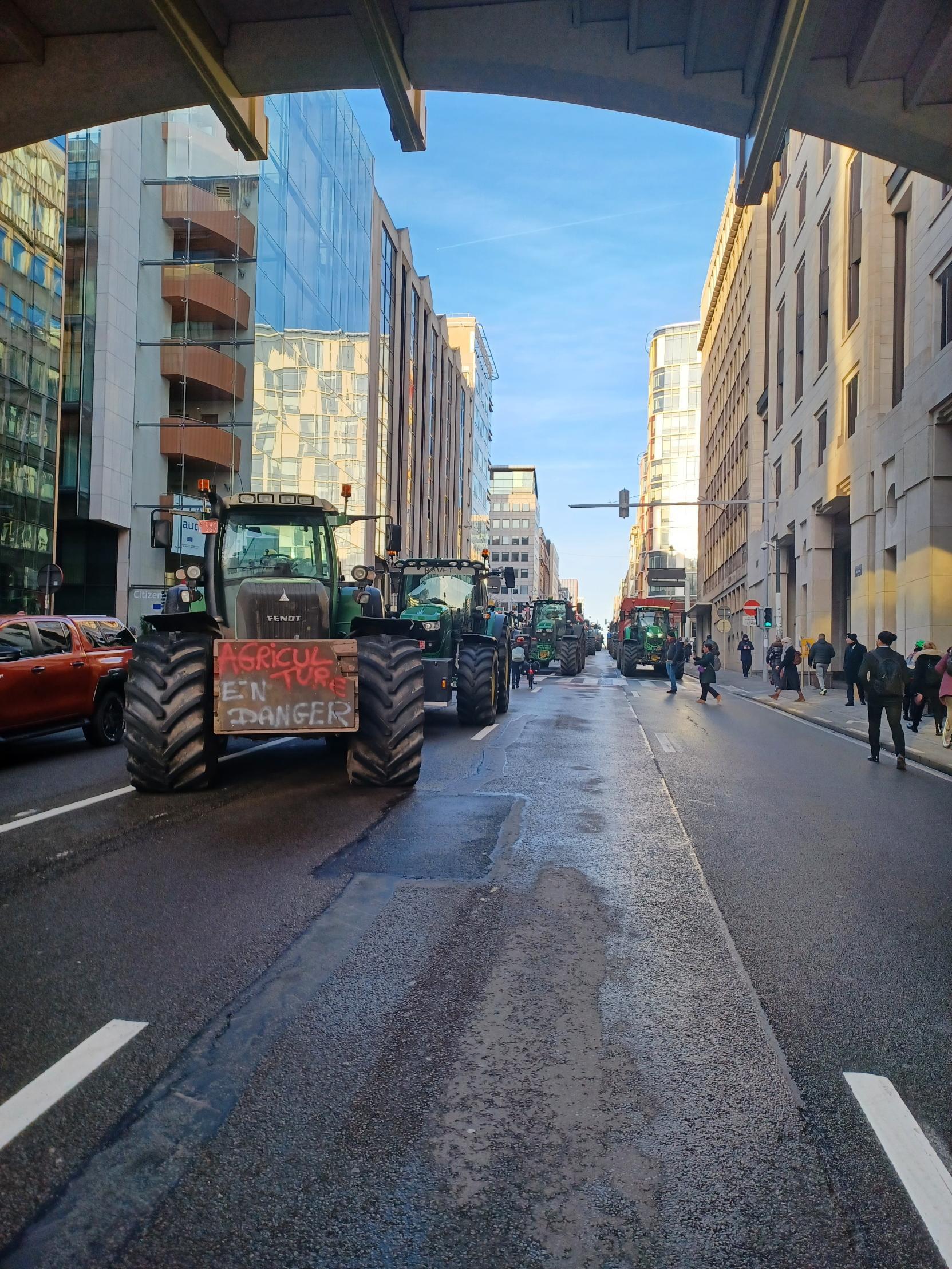
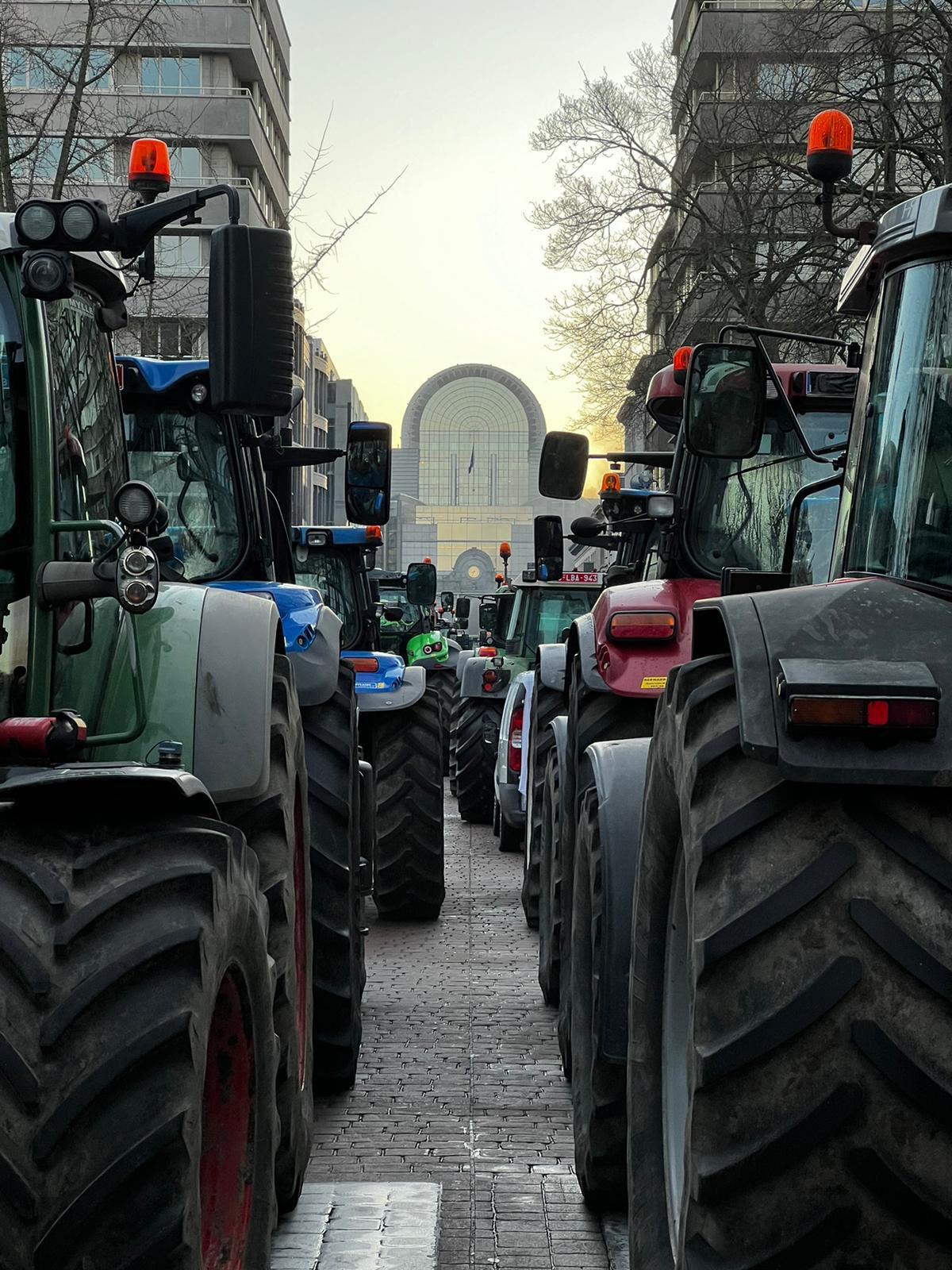
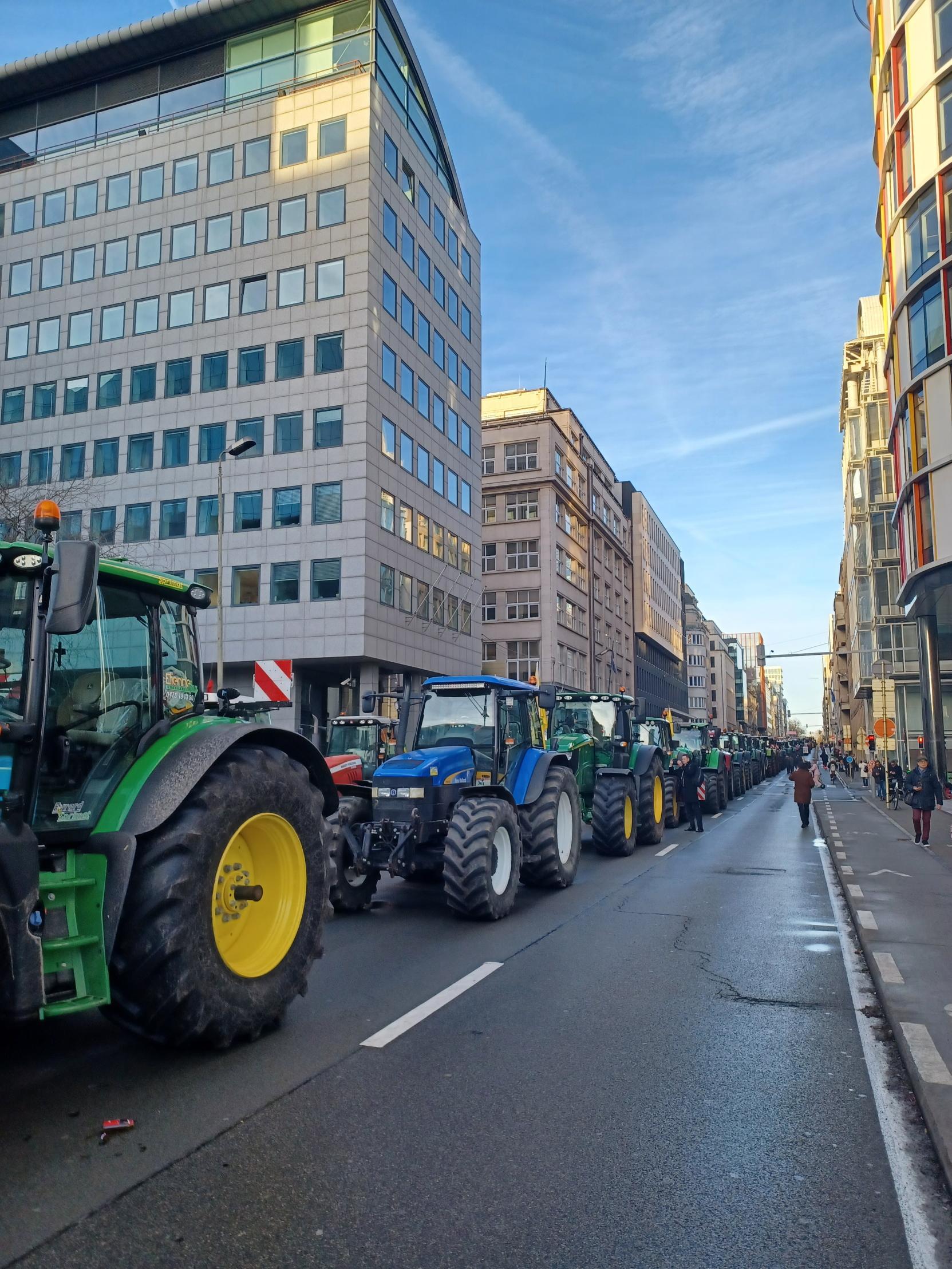
German farmers continue to protest over loss of fuel support
In Germany, the government had to unexpectedly find a way to fill a €17 billion shortfall in the budget after the Constitutional Court declared the proposed budget unconstitutional. To fill the gap, the government decided to cut some support for farmers, including for red diesel.
However, after widespread protests, the government backtracked on some of the announced measures including withdrawing the cancellation of the motor vehicle tax exemption, and an offer to instead phase out the agricultural fuel subsidy (red diesel) rather than the immediate removal as first announced.
This was not enough for farmers and the German Farmers’ Association (DBV) has continued to protests, with over 10,000 tractors and 30,00 people bringing central Berlin to a standstill last week.
However, the German Government was clear that there is little room to manoeuvre regarding red diesel as Finance Minister Christian Lindner stated to booing farmers at Brandenburg gate that “everyone has to do their bit”. Instead, they offered to try and reduce bureaucracy. President of DBV, Joachim Rukwied stressed that “The main issue now is this tax increase [the abolition of the agricultural fuel subsidy]. It has to be dropped.”
Lindner suggested the issue is more wide-reaching - “You can’t tell me you are here because of agricultural fuel. Something has been building up for years and decades.”
Eastern Europe continues to voice anger of Ukrainian imports
The last year saw repeated protests from Eastern European neighbours on the border with Ukraine, in opposition of tariff free imports of Ukrainian agri-food products. Respective governments have tried to find an acceptable compromise with the EU on import tariffs for vulnerable sectors like poultry and sugar in order to prevent the blockades imposed by farmers and truckers in Poland, Hungary, Slovakia, Romania, and Bulgaria in 2023.
However, Romanian farmers and truckers continue to protest after negotiations with the government failed. Farmers feel aggrieved over Ukrainian imports but also high taxes and delayed compensation payments for those affected by drought or disruptions caused by Ukrainian imports.
Russia's blockade of Ukraine's Black Sea ports has made Romania a key transit hub for Ukrainian grain, particularly through the port of Constanța. But the port's success has angered farmers and transporters who fear being displaced by Ukrainian companies.
In Poland, farmers and truckers have been blocking border crossings with Ukraine since November, complaining of "unfair competition" from their Ukrainian counterparts. It is expected that nationwide protests in Poland will continue with Bulgarian farmers announcing similar.
On 31 January, the European Commission proposed that all Ukrainian imports into the European Union remain free of duties until at least June 2025. The proposal does contains new safeguards for sugar, eggs and poultry products which are to be activated if quantities imported exceed the quantities in 2022 and 2023.The duty-free measures were first introduced following Russia’s invasion of Ukraine in 2022 to help the country’s economy by removing remaining duties not addressed by the EU’s free trade agreement with Ukraine from 2014.
This proposal, whilst expected, is unlikely to calm the situation in Eastern Europe who have been most vocal in their dissatisfaction at their perceived undermining by Ukrainian agri-food products.
Irish farmers to protest in solidarity
IFA President Francie Gorman said farmers around the country will be out in solidarity with their EU counterparts on Thursday 1 February saying “Farmers here have been watching the protests across Europe. They are just as frustrated by what is happening as farmers in other countries. They feel they are being regulated out of business by Brussels bureaucrats and Department of Agriculture officials who are far removed from the reality of day-to-day farming.”
